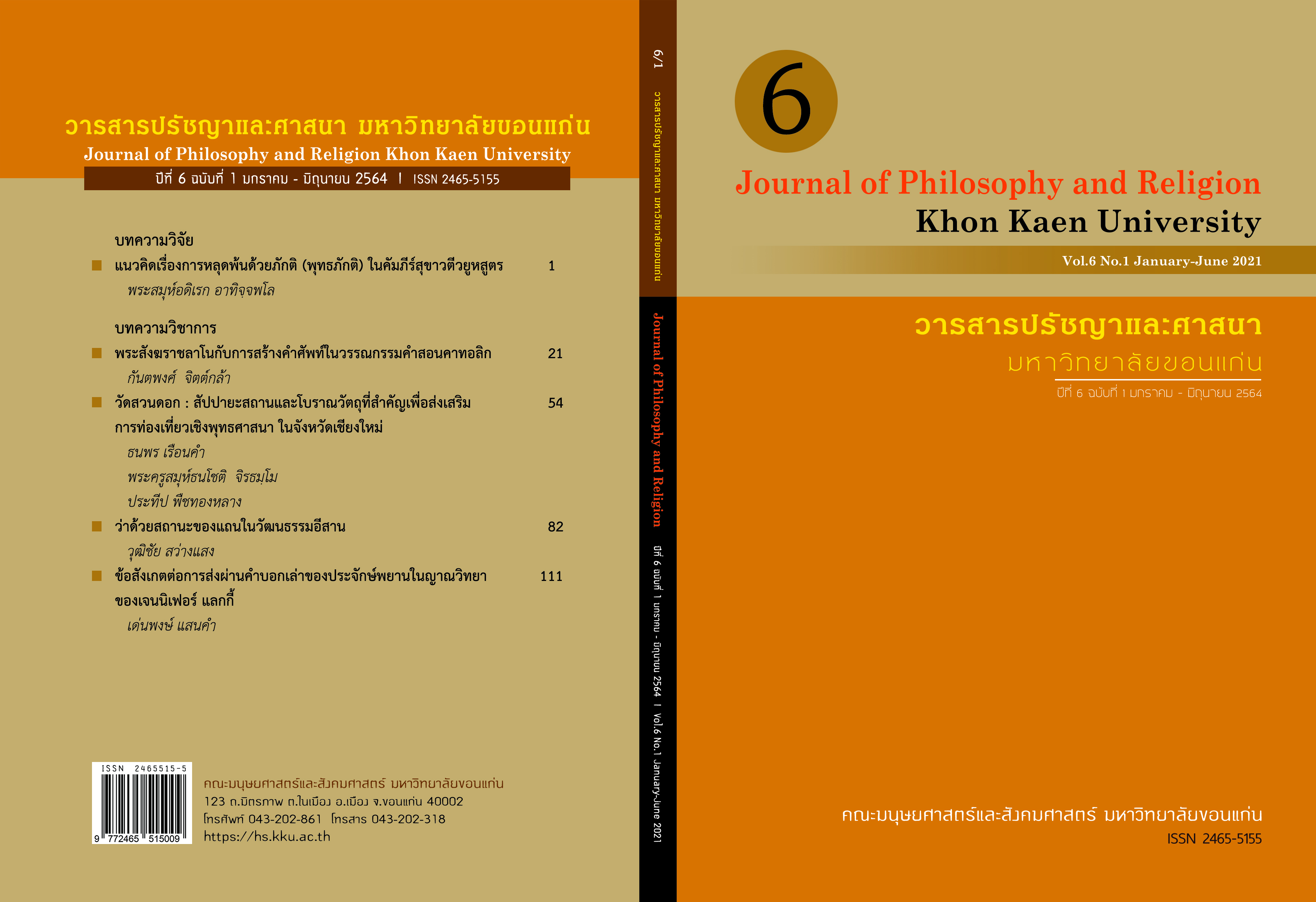Word Formation Processes of Bishop Louis Laneau in Biblical Literature Word Formation Processes of Bishop Louis Laneau in Biblical Literature
Main Article Content
Abstract
Abstract
This article aimed to present the word formation processes in the biblical literature which was used by Christian missionaries in Thailand during the Ayutthaya Period. The Word (L’Évangile) and the Catechism (Catechismo), which were translated and composed into Thai by Bishop Laneau of Ayutthaya, were selected to be analyzed. This article employed word formation processes (la néologie et le néologisme) as an analytical framework. In addition, contemporary texts such as archival documents and dictionaries were used to recheck the meanings of The Word (L’Évangile) and the Catechism (Catechismo). The findings revealed that there were four types of word formation processes used by Bishop Laneau: the mixing of Pali-Sanskrit, the mixing of Thai words and Western words, meaning change, including the use of royal words and honorifics. Royal words and honorifics were strategically selected by Bishop Laneau not only to praise God as an eternal being but also to introduce Christianity and the state of God to the Thai upper class of the Ayutthaya Kingdom. In addition, these word formation processes also reflected the uniqueness of language use by Bishop Laneau, who combined Western language and Eastern language, which has later become the unique characteristics of language used in the Catholic Church in Thailand since then.
Keywords: Word Formation, Meaning Change, French Missionary, Biblical Literature, Catholic


